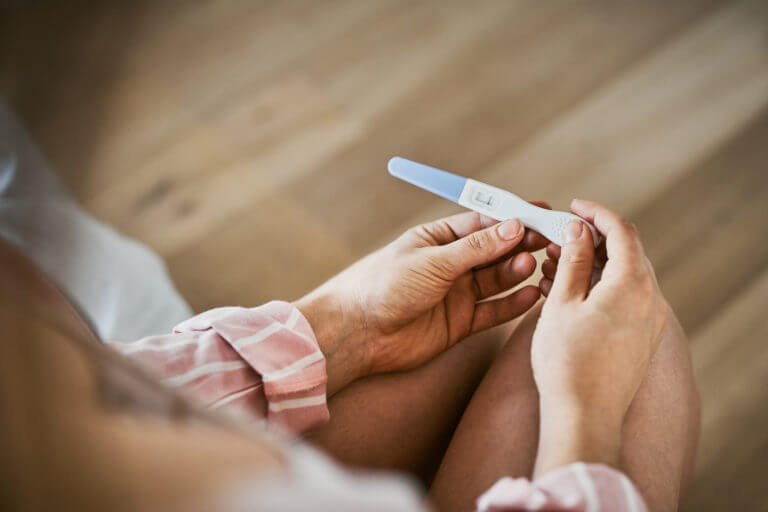
Although home pregnancy tests – those purchased at a regular drugstore – usually claim on their packaging to be over 99% accurate, they are not that correct. There are several factors that can cause a false positive and several factors that can cause a false negative.
Let’s talk about the accuracy of a home pregnancy test, and why a gynecologist is the best way to get an accurate answer to this question.
How Do Home Pregnancy Tests Work?
Home pregnancy tests check a woman’s urine for the presence of human chorionic gonadotropin, or hCG. This is the hormone released once a pregnancy occurs, and it is found in urine tests; it is even more accurately found in blood tests.
Each test is a little different depending on the brand, and each will have detailed instructions to follow. Some require placing the test strip into the urine stream, others must be dipped into a cup of collected urine, and still others use a dropper to collect and apply a few drops of the woman’s urine to the stick.
How Can a Home Pregnancy Test Be Incorrect?
Most tests have to be read within a certain brief period of time. If you wait for about 30 minutes or more before looking at the test result, it will show a false positive – but it is actually just an evaporation line left behind.
This is why you cannot take a pregnancy test and then show it to someone an hour later, because that extra solid line will be present.
Taking a Home Test After a Miscarriage or Abortion
Because there was a pregnancy that was suddenly ended, for the next couple of months the pregnancy hormone hCG will still be present in the woman’s body. All of the biological markers will fall away slowly.
Therefore, if a second pregnancy test is necessary a month later, the test can very easily still find the hormone present and report a false positive – especially if there is any remaining tissue from the pregnancy. Until the tissue is removed, a home pregnancy test will show positive results.
When Pregnancy Tests Reveal False Negatives
If a woman takes the pregnancy test too soon after conception, the hormones may have not yet developed and been released in the woman’s body. Therefore, the test will reveal a false negative, which can lead a woman to believe that she isn’t pregnant.
Additionally, if you check the results too quickly, the urine may not have had a chance to reveal the hormone’s presence – and so the test could be mistakenly interpreted as negative.
OB/GYN Clinic in Syracuse, New York
If you are wondering whether or not you are pregnant, see a trusted gynecologist for a definitive answer. The caring physicians at University OB/GYN Associates are here to conduct pregnancy tests, Pap smears, and women’s wellness checkups. We are conveniently located just a few steps away from Syracuse University.
Contact us today by calling our friendly staff at (315) 464-5162 or request an appointment online now. We look forward to partnering with you for a lifetime of health and wellness!



